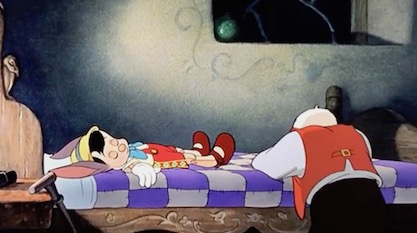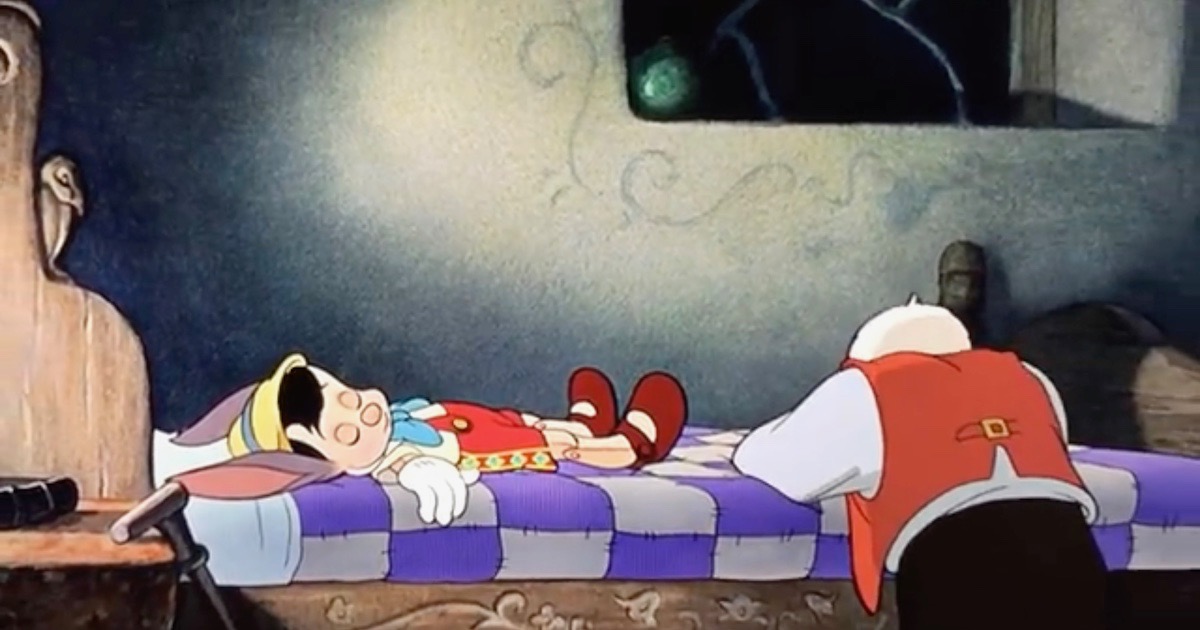 Faith & Science
Faith & Science
 Intelligent Design
Intelligent Design
Pinocchio and Geppetto: A Puppet Postscript


We commented yesterday on a video by Darrel Falk, Senior Advisor for Dialogue at BioLogos, who offers a new metaphor contrasting intelligent design with theistic evolution, aka evolutionary creation. In Falk’s vision, ID presents God as a “master puppet-builder,” whereas in evolution, he is a loving parent. Andrew has already noted the irony that evolution, if unguided, is “cruel and arbitrary,” hardly reminiscent of a father or mother’s nurturing relationship with a child. On the other hand, if it’s guided and if the guidance is objectively detectable, that is intelligent design.
I have to add my own brief postscript. Dr. Falk says in “Chromosome 2 Part 1. Evidence for an Evolutionary Creation,” starting at 5:19:
It could be that God in his design of human beings chose to put the information into one package for humans rather than two packages that were used for great apes. This is hypothesis number one, the God as an engineer hypothesis. I’m going to suggest an alternative, hypothesis number two, the God as parent hypothesis. According to this hypothesis, God in love establishes and maintains the conditions for human creation. But God does not dictate every step along the way. In hypothesis number two, God works through evolutionary processes, like a parent. In hypothesis number one, God is like [INAUDIBLE], putting all the parts together like a master puppet-builder.
At first hearing, a puppet-master or puppet-builder sounds chilly and unappealing, of course. I can’t quite decide what Falk is saying at 5:55. The automatically generated transcript at YouTube says God is like “the pita.” God is like the Middle Eastern bread that goes well with hummus? That can’t be right.
To me, it sounds like he’s saying under the “design” idea, God is like “THE-PEE-TOW.” Maybe there’s a glitch in the sound. Could he be referring to the name of the most iconic puppet-builder in our culture, Geppetto, from the story of Pinocchio? Another viewer joins me in thinking that is what he is saying. Whatever the case, this is certainly the association that comes to mind if you consider puppets and puppet-builders for a moment. In the classic 1940 Disney movie, the childless Geppetto wishes that his puppet Pinocchio should come to life. In the end, after self-sacrifice by both father and son, including being swallowed by a monstrous whale, Pinocchio does just that, awaking as a “real boy.” “But father,” he cries, “I’m alive, see?” It’s a wonderful, joyous scene from the movie.
Jordan Peterson in typical style gives a moving interpretation of the story in a conversation with Dave Rubin. Peterson has to stop for a moment to pull himself together in the face of his own strong emotional response:
So the puppet-builder in the most famous story of a puppet and its maker that you can think of is also a shining, beautiful example of a most loving father and creator. Every father should wish to be as caring and devoted, as every child might wish for such a father. That, from a biologist seeking to dissuade viewers from the intelligent design position, is the carefully selected metaphor for casting ID as emotionally cold and remote? That is not going to fly. Back to the drawing board, I think, Dr. Falk.
Photo at top: A screen shot from the end of Pinocchio, via YouTube.
